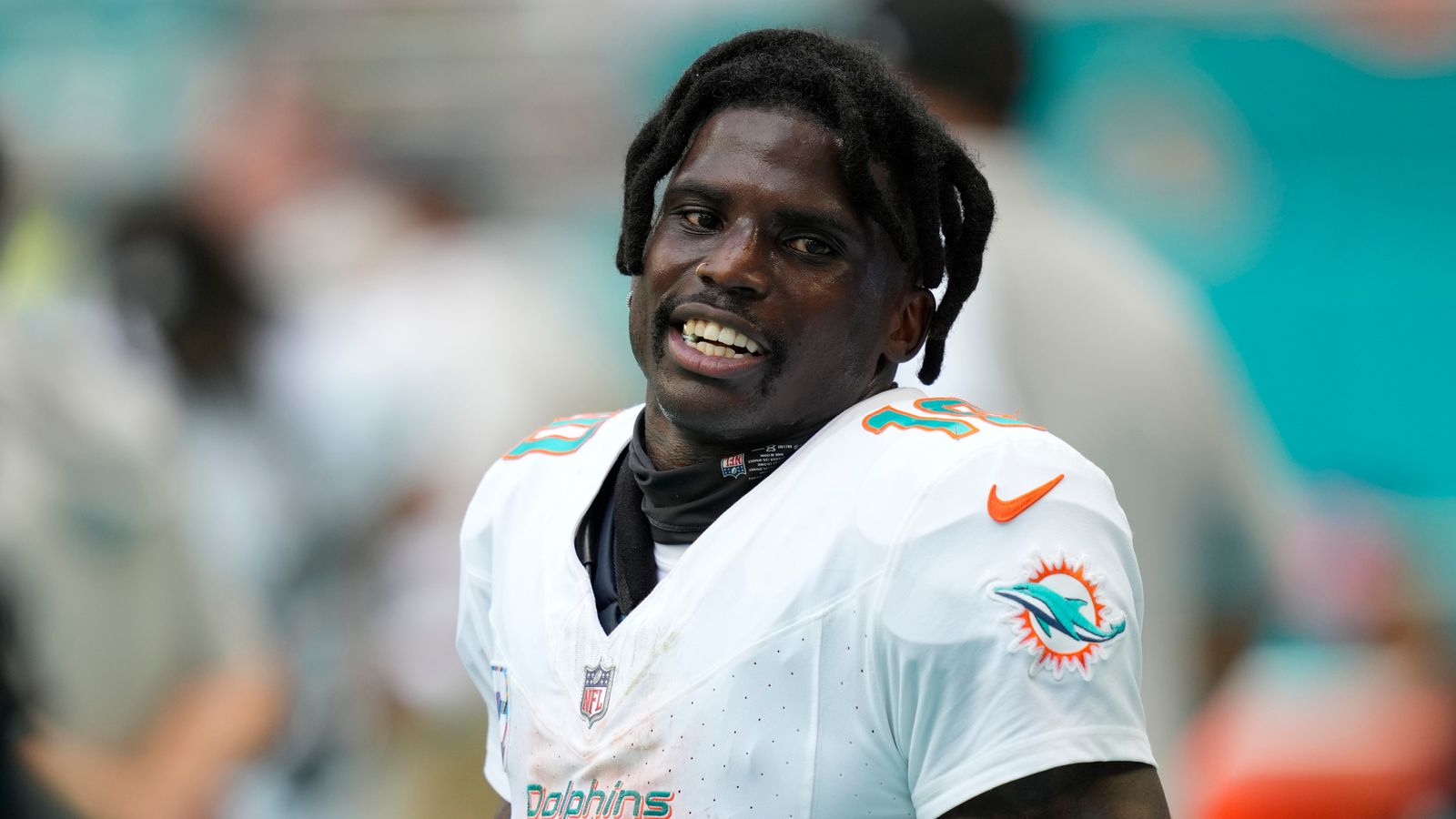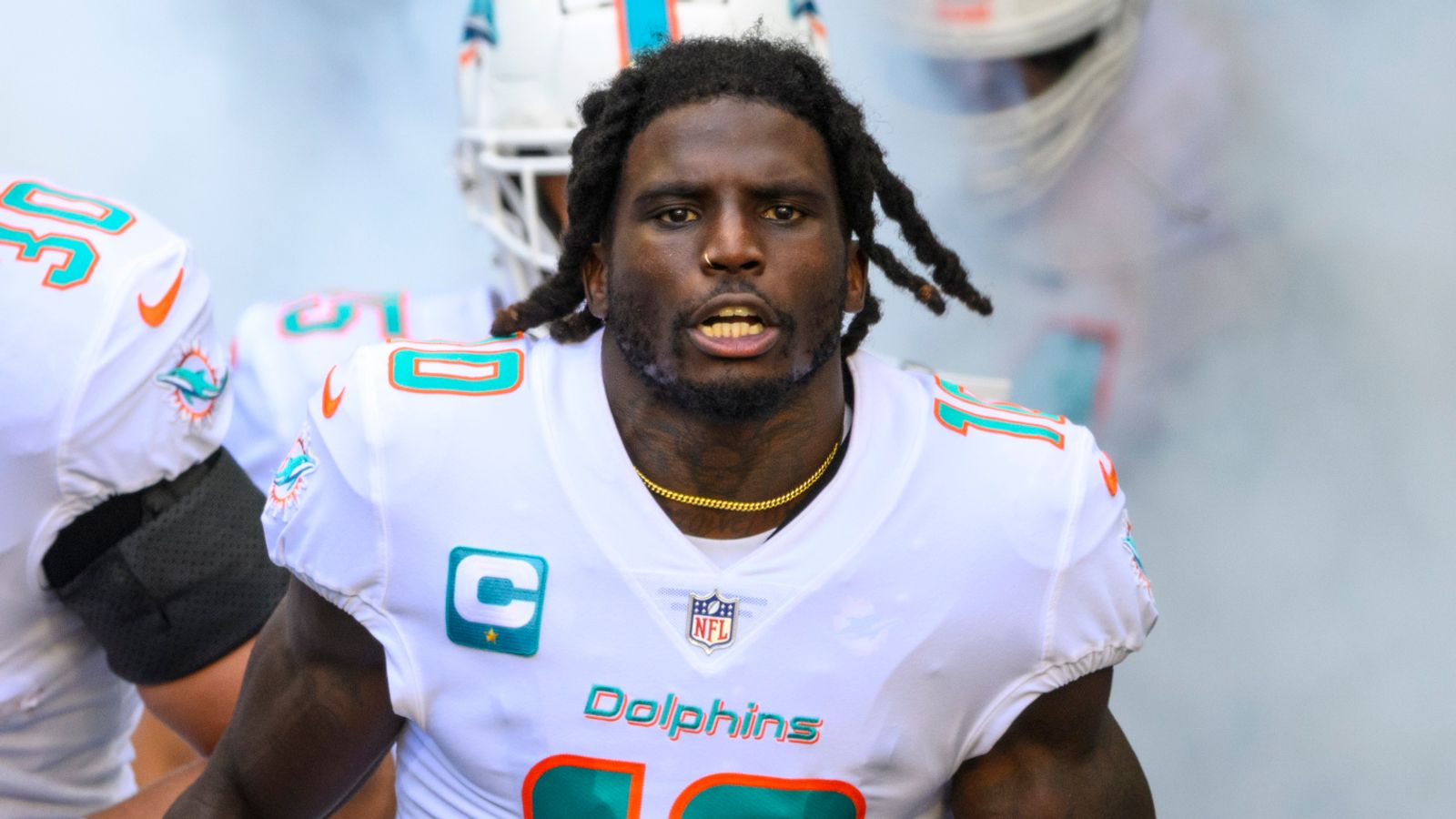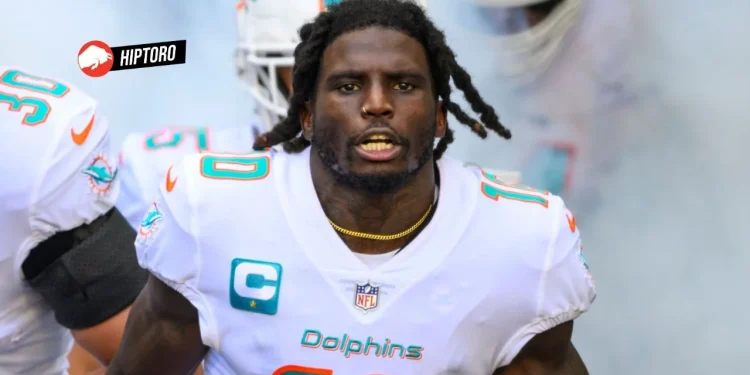Tyreek Hill, the Miami Dolphins’ All-Pro wide receiver, stirred the sports world with his candid comments about a tense postgame exchange with head coach Mike McDaniel. During an appearance on the Million Dollaz Worth of Game podcast, Hill did not hold back, revealing McDaniel’s sharp critique of his performance.

According to Hill, McDaniel challenged him by saying, “Reek, you’re supposed to be the best player in the league, and you got this guy putting hands all over you like that. We pay you all this money for what?”
Such a blunt assessment, especially coming from a head coach, underscores the high expectations and pressures in professional sports, particularly in the high-stakes environment of the NFL playoffs.
Kansas City Chiefs’ Dominance Over Miami Dolphins
Hill’s revelation goes beyond a simple locker room anecdote; it highlights the psychological impact of the Chiefs’ dominance over the Dolphins. It’s not just about a physical defeat on the field but also about the mental and emotional toll it takes on a team, especially when internal criticisms come to light. Hill himself admitted to taking such criticisms to heart, vowing that such a performance “would never happen again to me in my life.”
This episode serves as a telling snapshot of the broader rivalry and tension between these two teams, suggesting that the Chiefs might just be occupying significant mental real estate within the Dolphins’ psyche. Hill’s response to McDaniel’s callout—while indicative of his resolve and accountability—also speaks volumes about the team dynamics and the pressure to perform.
Tyreek Hill felt disrespected after Chiefs gave #10 to Pacheco:
"I did feel disrespected when they gave him 10 though. I didn't like that, There's only one 10" (via @mworthofgame) pic.twitter.com/gjOv5UUjek
— BBQ Chiefs (@BBQChiefs) April 23, 2024
Tyreek Hill’s Resilience and Team Dynamics
Hill’s handling of the situation reflects his resilience. Despite catching five of his eight targets for 62 yards and scoring the team’s only touchdown, Hill could have pointed fingers at other areas of struggle, such as the Dolphins‘ defensive efforts or quarterback Tua Tagovailoa’s performance, who completed only 51.3% of his passes.
However, he chose to accept McDaniel’s criticism as constructive, using it as fuel to improve and ensure such a disappointing outcome is not repeated.
Moreover, Hill’s openness about his interactions with McDaniel offers a rare glimpse into the personal challenges and behind-the-scenes dynamics within professional sports teams. It reveals how players and coaches navigate the fine line between criticism and motivation, especially following high-stress events like a playoff loss.

Lessons from the Field
As the dust settles on their Wild Card exit, the Dolphins and Hill are left to reflect on both their physical and mental approach to the game. For Hill, this moment may define his future performances, proving either a pivotal point of personal growth or a lingering issue. For the Dolphins, it’s a stark reminder of the relentless scrutiny and high expectations that define the NFL.
As they regroup for the next season, the ability of players and coaches to harness such moments of candid feedback constructively will be crucial in determining their future success and overcoming the mental blocks posed by powerhouse teams like the Chiefs. Hill’s saga will undoubtedly continue to resonate as a case study in athlete resilience and the complexities of team dynamics in professional sports.

Source: Fansided









